Dear Readers,
The world is starting to show countries that present sustainable solutions.
Spain is leader in solar energy. Iceland has 100% of its energy from renewable energies. Sweden imports waste from Norway as it has no more waste to recycle. And in New Zealand they already have a river recognized before the law as a legal person; this is, with the same rights as a citizen.
On this last example, one of our readers, Zelmira Amelia Lugones, posted: I support the idea and would like to implement it in Argentina, how can we do it? And she left me speechless…
Ploff.net is a space open for debate, and which are the know how’s is the toughest question to answer. Because the answer must be configured among all of us.
Personally, I still do not have a specific answer on how to take action –although I promise to be doing everything academically possible in order to figure it out-, but I do know towards where we are going (or where we should go), and every decision making is taken forward according to that objective.
Adapting one of Gandhi’s phrases, a dear professor of mine, Guido Rovatti, said: THERE IS NO WAY TO SUSTAINABILITY. SUSTAINABILITY IS THE WAY.
My proposals are only a seed, ideas that germinate with our good vibes and seeking for the greater good. Nevertheless, CHANGE will not be generated by spontaneous combustion, nor by good intentions.
1) We need to inform ourselves, in order to be aware of the environmental issues that strike the planet and visualize that the consequences to such issues, are way beyond our country boundaries. They are global issues that involve each and one of us.
“Knowledge, like air, is vital to life. Like air, no one should be denied it.” ― Alan Moore, V for Vendetta.
(Did anyone know, for example, that the Fukushima plant is still unstable, and if not contained it could leave a huge piece of the planet uninhabitable?)
2) We must talk these things with our mates, family members, bring it into the dinner table. Scientists and sociologist must not be the only ones to worry, but every mother and father, every student, every artist, ALL OF US.
3) If we have any lawyer as a friend, consult them on how we could articulate Argentinian laws to cope with changes ahead (I’ve got a friend of mine who is a lawyer, Fernando Capponi; he recently met with another friend of mine who studies civil engineering, Diego Garavaglia, in order to see how to give a legal frame to the implementation of green roofs in the city of Buenos Aires)
4) If we have friends specialized in economy, tell them to meet with lawyers to try and change our taxing system. To value company-taxes according to a true environmental impact study, and make them invest a percentage of their profit in recomposing the environment.
5) If we know any teachers or professors, tell them to include environmental issues in their study programs.
6) If we meet any psychologist, anthropologist, sociologist, ask them which their opinion is on the last 200 years of collective consciousness. A friend of mine, Clara Dadourian, recommended this video to me, not long ago; a TED talk on the power of choice.
7) Start voting political parties that include environmental issues in their agendas. These are the ones that obtain the least amount of votes, but if we start voting them, the others will perceive that we do care how we legislate and manage our natural resources and the whole planet. Or anytime we get in contact with a politician, ask him what is being done for the environment. NOT what is going to be done… but what is being done RIGHT NOW. Force them to recognize their errors.
“People shouldn’t be afraid of their government. Governments should be afraid of their people.” ― Alan Moore, V for Vendetta.
For now, I can only propose these things, and I know it is not enough. But I invite everyone to give their opinion in ways of taking action…
It is true that all the countries put as an example above have the money needed to make all the big changes within the production systems. It is also true, that societies within these countries had the material welfare (energy, food, a roof and education) needed to allow their minds to concern on improving human existence, or seeking for new ways of giving a legal frame to the sustainable changes required for our future. Hence, it is understandable that the first tangible sustainable solutions come from “developed” countries.
In “developing” countries –being DEVELOPMENT the fact of generating more money, not minding if that wealth is then centralized, or worse: not minding at expense of whom that wealth was obtained… To whom those who have Power had to mortgage their happiness? What natural resource was strangled?- the situation is completely conversely.
Not only the money required is not there, but those citizens who have the intellectual capacity of finding alternative ways and changing things cannot do so without putting at risk their own survival within the system. We still have to sell our work force if we aspire to obtain certain fictitious independence inside the system.
However, we must not surrender to this panorama. Let us keep our daily living, but KNOWING that at some point we will have to make a decision, of any kind, and that decision, no matter how tiny and superfluous it might seem, must be targeted towards sustainability.
Do I throw this paper to the floor? Or do I keep it until I get home? – do I take out the car for a few blocks? Or do I go for a walk? – Do I buy bleached white paper? Or the one that has the sustainable reforestation label? – Do I throw my waste in 1 only bag? Or do I separate them properly? –Do I buy local and in season fruits and vegetables? Or will I consume strawberries and avocados all year? – Do I study an easy career in order to have a degree quickly? Or do I commit myself to studying a tougher profession, which allows me to have the tools to dismantle the system?
Day by Day. Decisions
Have a great week!
Brian Longstaff.-

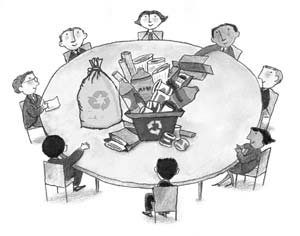





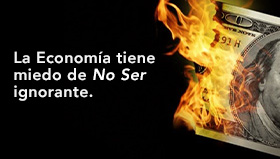





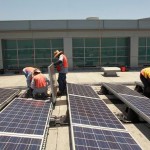



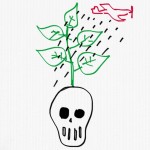

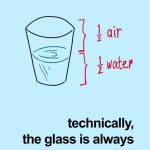



Clari Dadourian Nov 19 , 2012 at 09:33 PM /
briti sos groso!!! me parece muy piola esto que decis! y que lindo que escribis!!!! sos el mismo de 7mo grado! misma redacción excelente, igual de brillante! que orgullo!
Jenny Rios Nov 21 , 2012 at 06:34 PM /
somos la gente que estabamos esperando( como dice Miguelito Grinberg) y no nos damos cuenta!!! abrazo apretado amigo…….
Rocko Rock Nov 23 , 2012 at 10:16 AM /
GROSO COMO SIEMPRE (seba R) Abrazo de Gol!
Renata Sofía Rovatti Dec 05 , 2012 at 01:41 AM /
Muy bueno, está genial que se reflexione acerca de estos temas que poca gente tiene en cuenta.